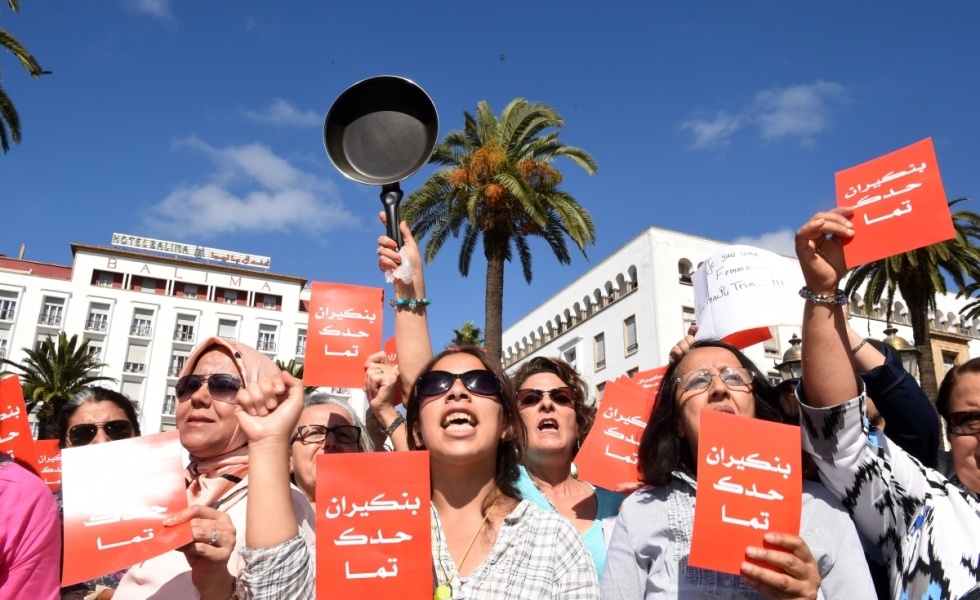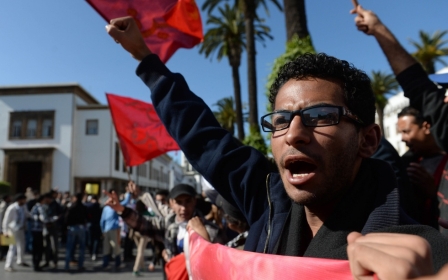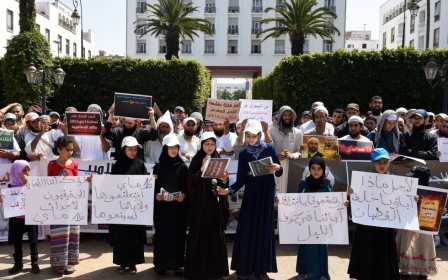Morocco women protest Prime Minister's 'stay at home' speech

Moroccan women protested outside parliament on Tuesday demanding the resignation of Prime Minister Abdelilah Benkirane after he urged women to stay at home and look after their families.
"Benkirane get out! Morocco is not for you!" were some of the slogans chanted by the protesters, who numbered about 100, and also waved placards and frying pans.
The leader of the moderate Islamist Party of Justice and Development (PJD) caused a stir last week when he compared women to "lanterns" and lamented that the "sacred status God gave" to mothers who stay at home was not respected.
Speaking in parliament, he said: "Don't you realise that when women went to work outside, the light went out of their homes?
"We will continue to defend our position against this modernity that is trying to eliminate family in our lives by reversing the roles of men and women. To that we say 'no!'"
NGOs and opposition parties have condemned the prime minister's comments, with some accusing him of blaming Morocco's multiple social problems on a "deterioration in moral values" that resulted from women working.
Amina Benameir, one of the protesters at Tuesday's demonstration, called his speech "irresponsible", and accused the prime minister of swimming against the tide of history.
"He's completely out of touch. Women have been working in Morocco for hundreds of years. And since 2011 we have achieved a lot more rights," said the working mother of two.
Gender equality is enshrined in the new constitution introduced by King Mohamed VI in 2011 in a bid to defuse Arab Spring protests.
Article 19 guarantees that "men and women enjoy on an equal footing civil, political, economic, social, cultural and environmental rights and freedoms".
However it has yet to come into force, with women periodically staging protests demanding that it be applied by the Islamist-led coalition government, which took office nearly three years ago.
Middle East Eye propose une couverture et une analyse indépendantes et incomparables du Moyen-Orient, de l’Afrique du Nord et d’autres régions du monde. Pour en savoir plus sur la reprise de ce contenu et les frais qui s’appliquent, veuillez remplir ce formulaire [en anglais]. Pour en savoir plus sur MEE, cliquez ici [en anglais].




